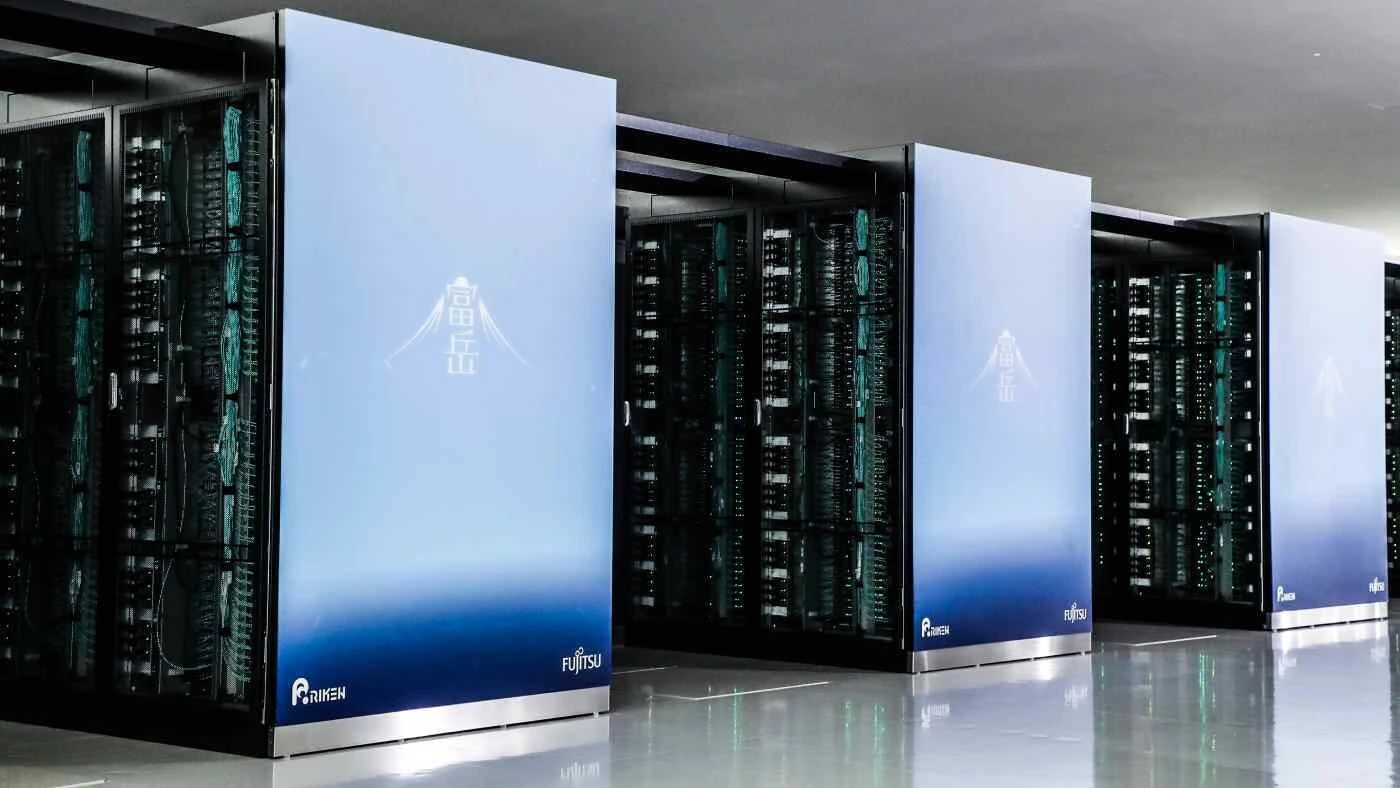Japan to Build Supercomputer 1,000X Faster Than Other Machines. country has unveiled plans to begin construction of the world’s first “zeta-class” supercomputer in 2025. This groundbreaking machine will be 1,000 times faster than today’s most powerful supercomputers, representing a significant leap in computational power. The supercomputer, estimated to cost over $750 million, is expected to be fully operational by 2030.
The project, announced by Japan’s Ministry of Education, Culture, Sports, Science and Technology (MEXT), aims to develop a supercomputer capable of achieving speeds on a zetaFLOPS scale.
To put this into perspective, a supercomputer operating at 1 zetaFLOPS can perform one sextillion calculations per second — a staggering feat never before reached in the world of computing. In comparison, the fastest supercomputers today, which operate at just over 1 exaFLOPS, handle only one quintillion calculations per second.
Read : India Overtakes Japan to Become 3rd Most Powerful Country in Asia
This new development is seen as crucial for Japan to stay ahead in scientific research and AI advancements. The proposed supercomputer, referred to as “Fugaku Next,” will be the successor to the Fugaku supercomputer, which was once the world’s fastest until it was surpassed by the U.S. Frontier supercomputer in 2022. Fugaku Next will be built by the same companies responsible for Fugaku — RIKEN and Fujitsu.
The ZetaFLOPS Milestone and the Future of AI

The zetaFLOPS speed milestone will allow the new supercomputer to solve problems with unprecedented speed and accuracy. This boost in performance is crucial for areas such as AI research, quantum computing, climate modeling, and other fields that require massive data processing capabilities.
Read : Land of the Rising Sun: Must-Visit Destinations Across Japan
AI development, in particular, is advancing rapidly, and this supercomputer will be key in pushing the boundaries of what machines can achieve in fields like machine learning, natural language processing, and complex simulations.
The decision to pursue this zeta-class machine comes at a time when AI is revolutionizing numerous industries. Japan aims to use Fugaku Next to propel its scientific and technological capabilities forward, ensuring it remains a global leader in AI research and development.
Japan to Build Supercomputer ZetaFLOPS
Although the technical specifics of the Fugaku Next project are still largely unknown, the development of this zeta-class machine is being viewed as a monumental engineering challenge.
Current supercomputer technology requires vast amounts of energy, and estimates suggest that a zeta-class machine built with today’s components would consume the equivalent energy of 21 nuclear power plants. This makes energy efficiency a major hurdle that engineers must overcome in building this machine.

RIKEN and Fujitsu, the companies leading the project, are already working on creating components that are both powerful and efficient. Fugaku Next will likely incorporate new technologies to achieve its zetaFLOPS capabilities while minimizing its energy footprint. The machine is expected to be cross-compatible with Fugaku, allowing for seamless integration between the two systems.
Japan’s Commitment to Technological Advancement
Japan has always been a major player in the world of supercomputing, and Fugaku Next represents the nation’s commitment to maintaining its competitive edge.
The construction of the zeta-class supercomputer will be a massive undertaking, and MEXT has already allocated ¥4.2 billion ($29 million) for the first year of the project. By 2030, the total investment could reach ¥110 billion ($761 million).
If all goes according to plan, Fugaku Next will not only be the most powerful supercomputer on the planet but will also set the stage for future innovations in AI, quantum computing, and other high-performance computing applications.

With the pace of technological advancement showing no signs of slowing down, Japan’s zeta-class machine will likely serve as a foundation for even greater breakthroughs in the years to come.
As Japan races to build this supercomputer, it is unlikely that any other country will achieve zetaFLOPS capabilities before Fugaku Next is complete. This ensures Japan’s leadership in the global race for supercomputing power, positioning it as a key player in the future of AI-driven research and innovation.
As Fugaku Next moves closer to completion, anticipation is building around the potential applications of this zeta-class supercomputer. Its unmatched speed and processing power will revolutionize industries ranging from scientific research to artificial intelligence.
For Japan, this project is more than just a technological achievement — it is a symbol of the nation’s unwavering dedication to innovation and its role in shaping the future of computing.

